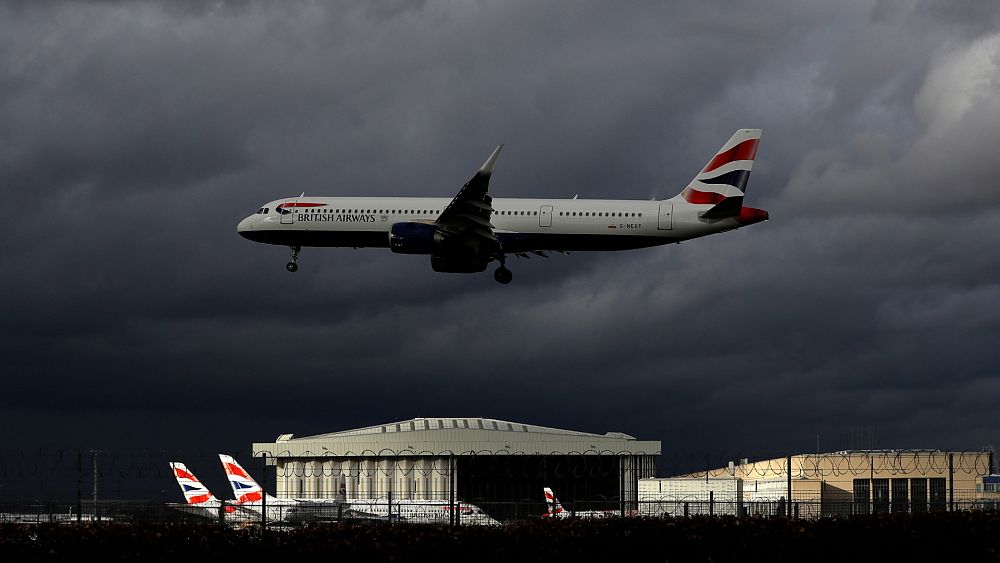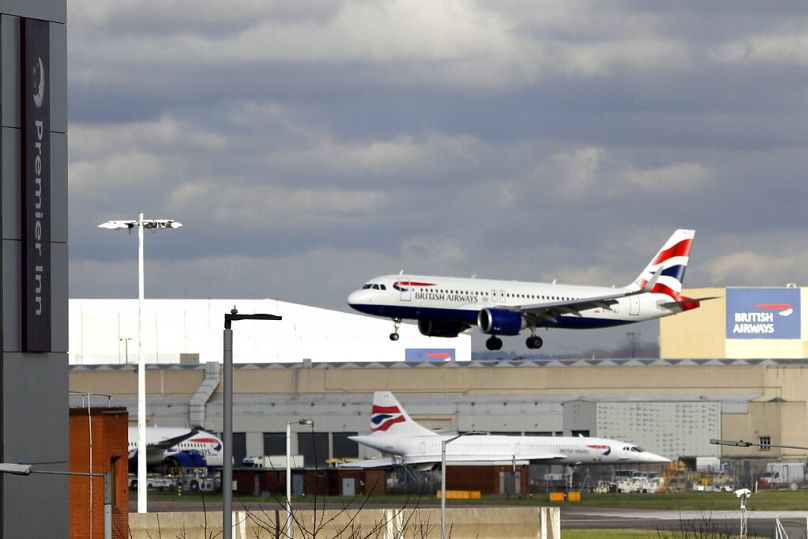
Guilt-free flying could still be a long way off, scientists have warned.
A new report from the Royal Society, the United Kingdom’s national academy of sciences, has found that sustainable aviation solutions still need a lot of research and development.
The resources needed to produce them are also out of reach.
Former transport secretary Grant Shapps said last year that by 2050 aviation in the UK would be green. He added that “guilt-free flying is within our reach”. Around 8 per cent of the country’s emissions come from flying and demand is expected to increase in the coming year.
But plans to reach so-called ‘jet zero’ rely heavily on switching to sustainable aviation fuels.
Can alternative fuels replace traditional options?
The Royal Society study looked at four options — hydrogen, biofuels, synthetic fuels and ammonia — which could replace fossil jet fuel. It concluded that none could do so in the short term.
The UK uses 12.3 million tonnes of jet fuel every year. To produce enough biofuel — which is made from crops — half of Britain’s farming land would need to be used, according to the Royal Society. This would put pressure on food supplies in the country.
At most, the UK’s waste cooking oil could cover 0.6 per cent of its jet fuel usage. Food waste would add another 10 per cent. These biofuels are still a long way from fulfilling what the country needs.

Hydrogen fuels produced using renewable energy — known as ‘green hydrogen’ — were another option. But the UK doesn’t currently generate enough electricity from renewable sources to produce the required amount of fuel. The Royal Society also points out that many existing planes can’t use these hydrogen fuels.
Other options like ammonia and synthetic fuels face similar practical problems. These solutions would require even more green hydrogen — and as much as five times more renewable energy to produce it. It isn’t clear either whether aircraft would be able to use them.
According to the report, there isn’t a clear alternative to traditional jet fuel.
Can the UK reach its ‘jet zero’ goal?
The Royal Society says that these problems make reaching the goal of net zero emissions from domestic flights by 2040 and international flights by 2050 unlikely.
“There is no single, clear, sustainable alternative to jet fuel able to support flying on a scale equivalent to present-day use,” it concludes.
All hope isn’t lost for green flights in the UK, however. The Royal Society says that a long-term solution will probably be developed but that it will require planes and airports to be redesigned.
New fuels will need to be safe, usable around the world and able to fuel long-distance flights, the report adds.
More research into sustainable aviation fuel is also needed — and the UK could become a world leader in this area if it chooses to invest.

